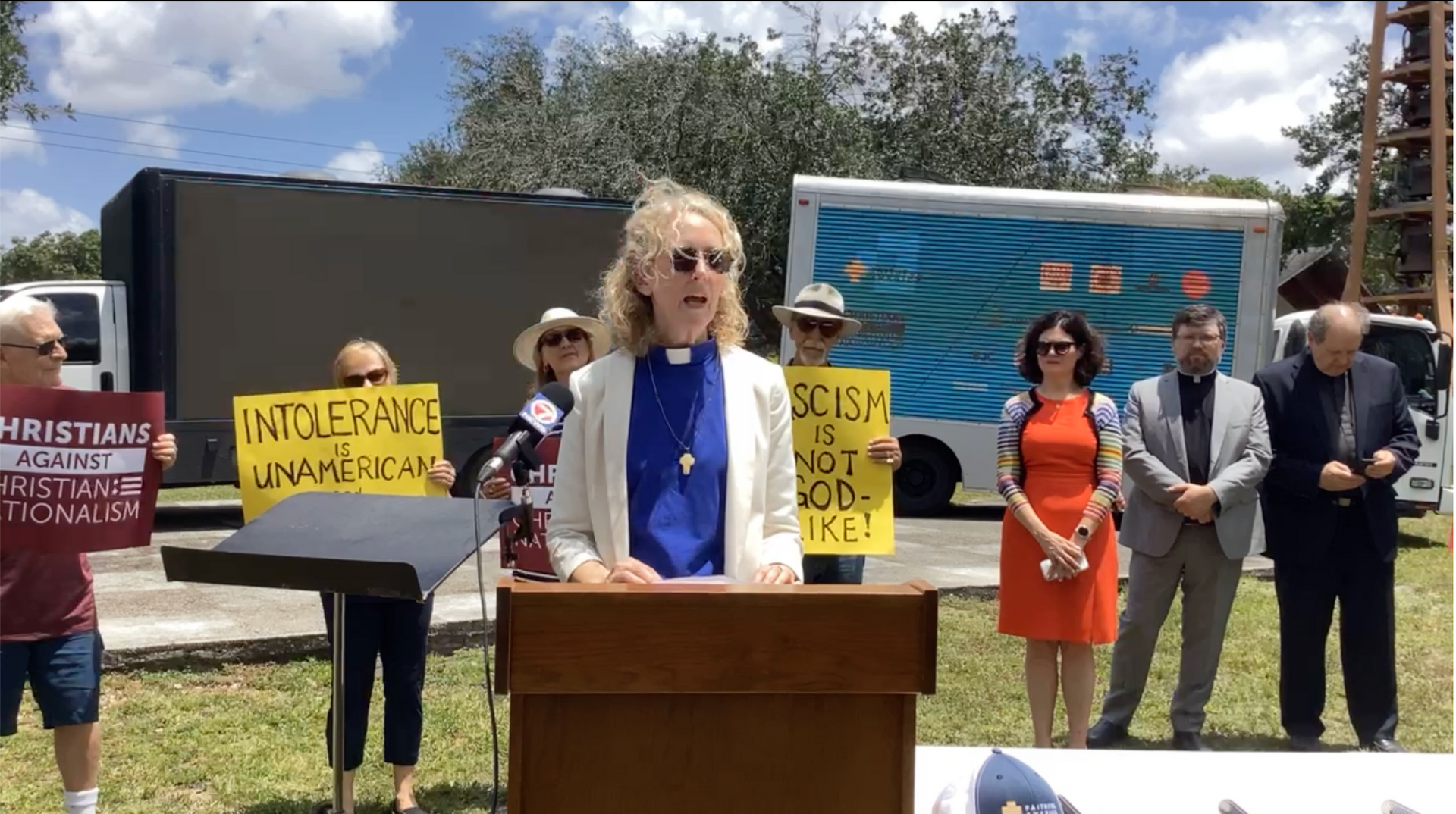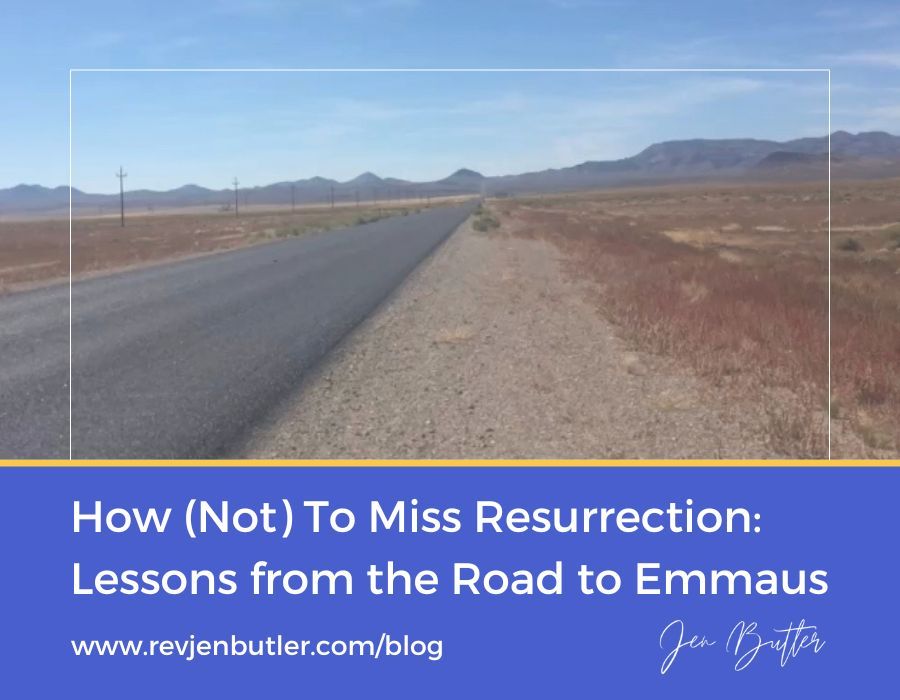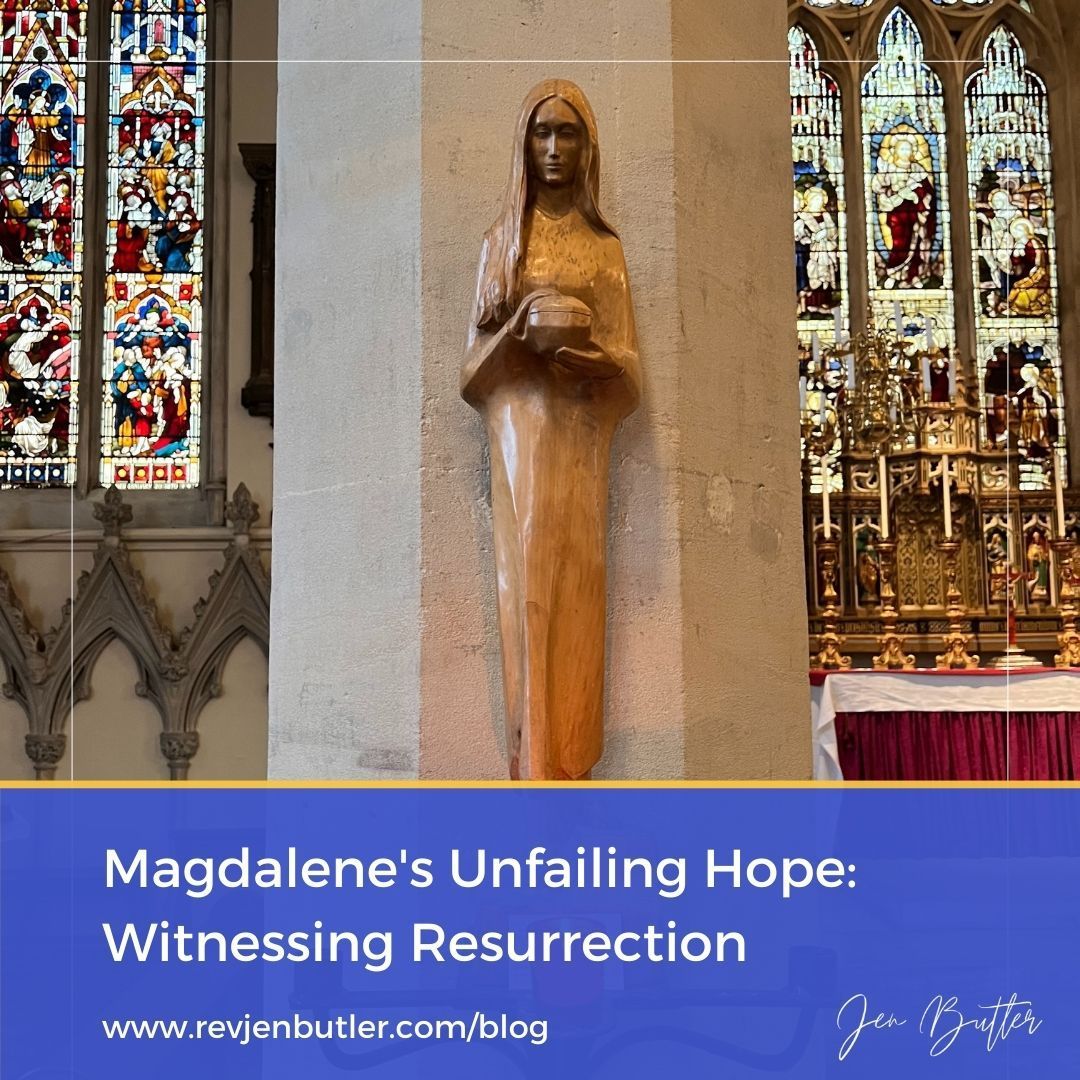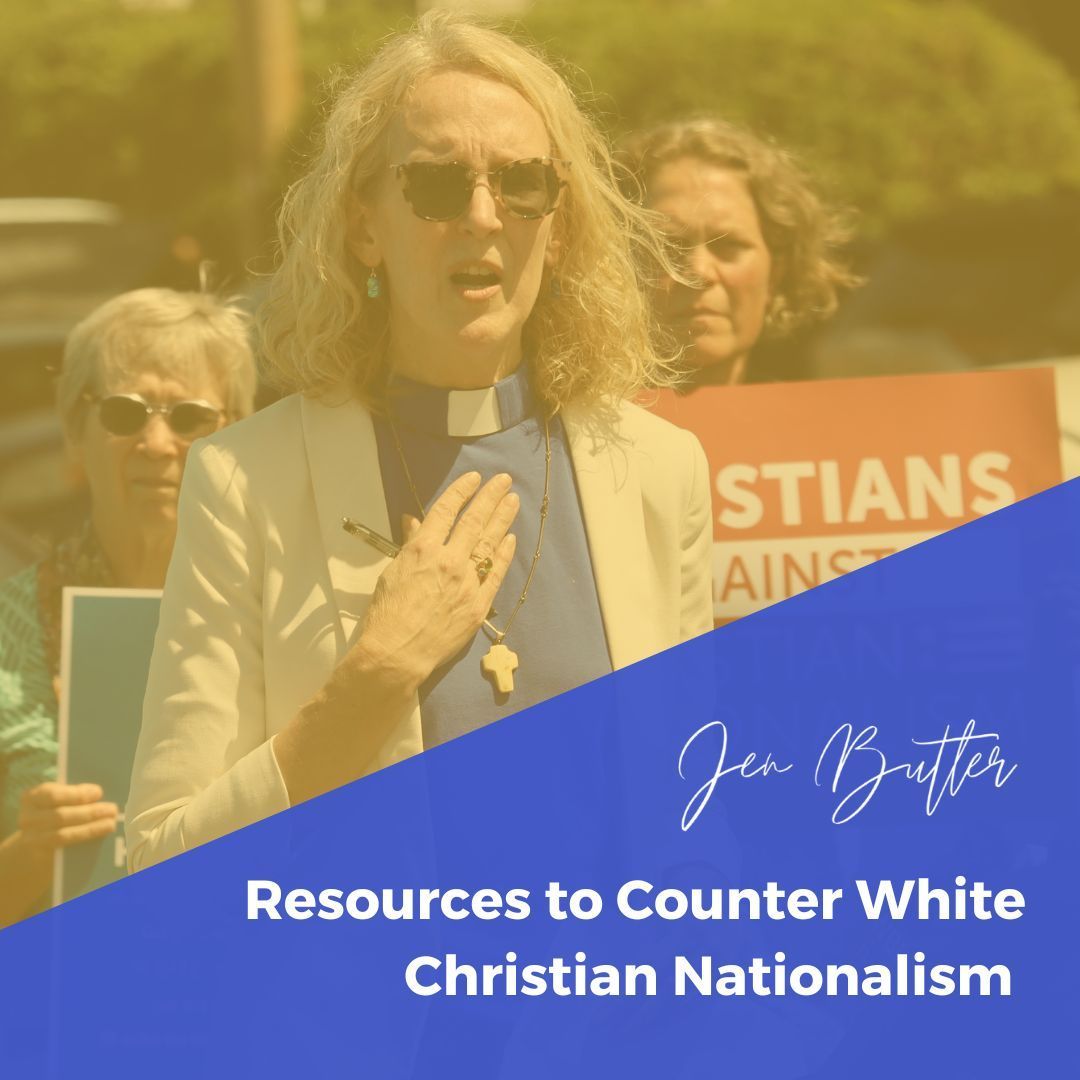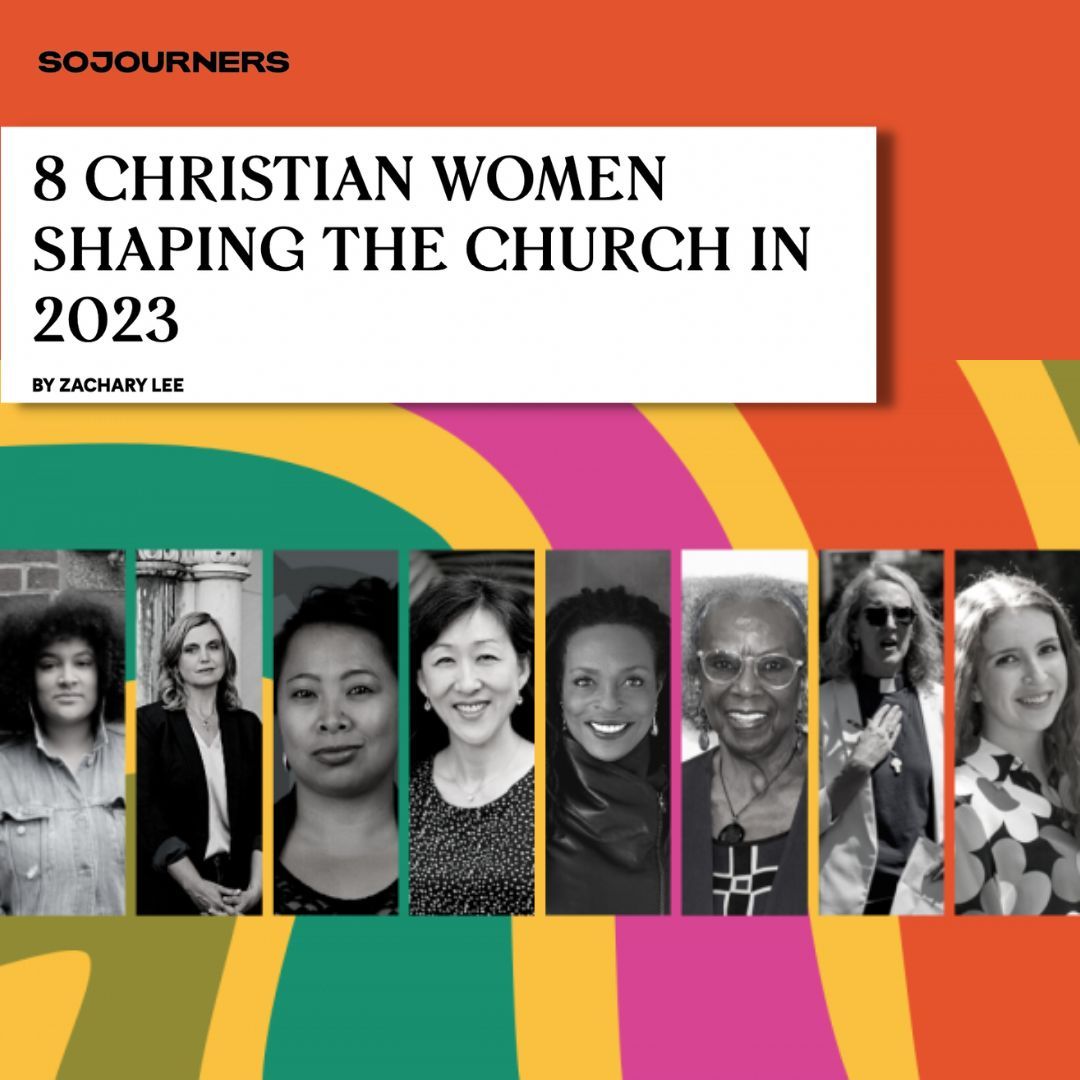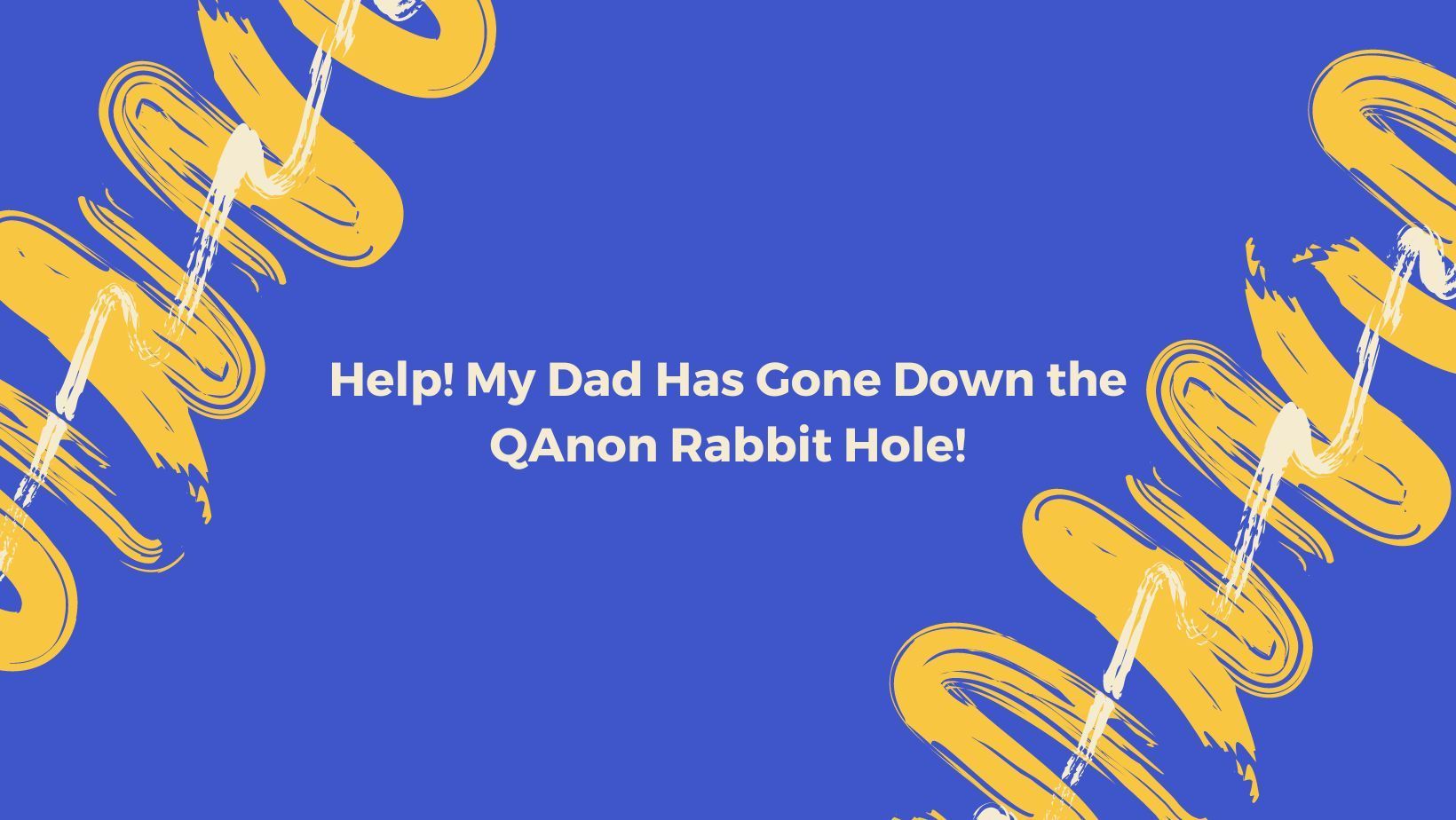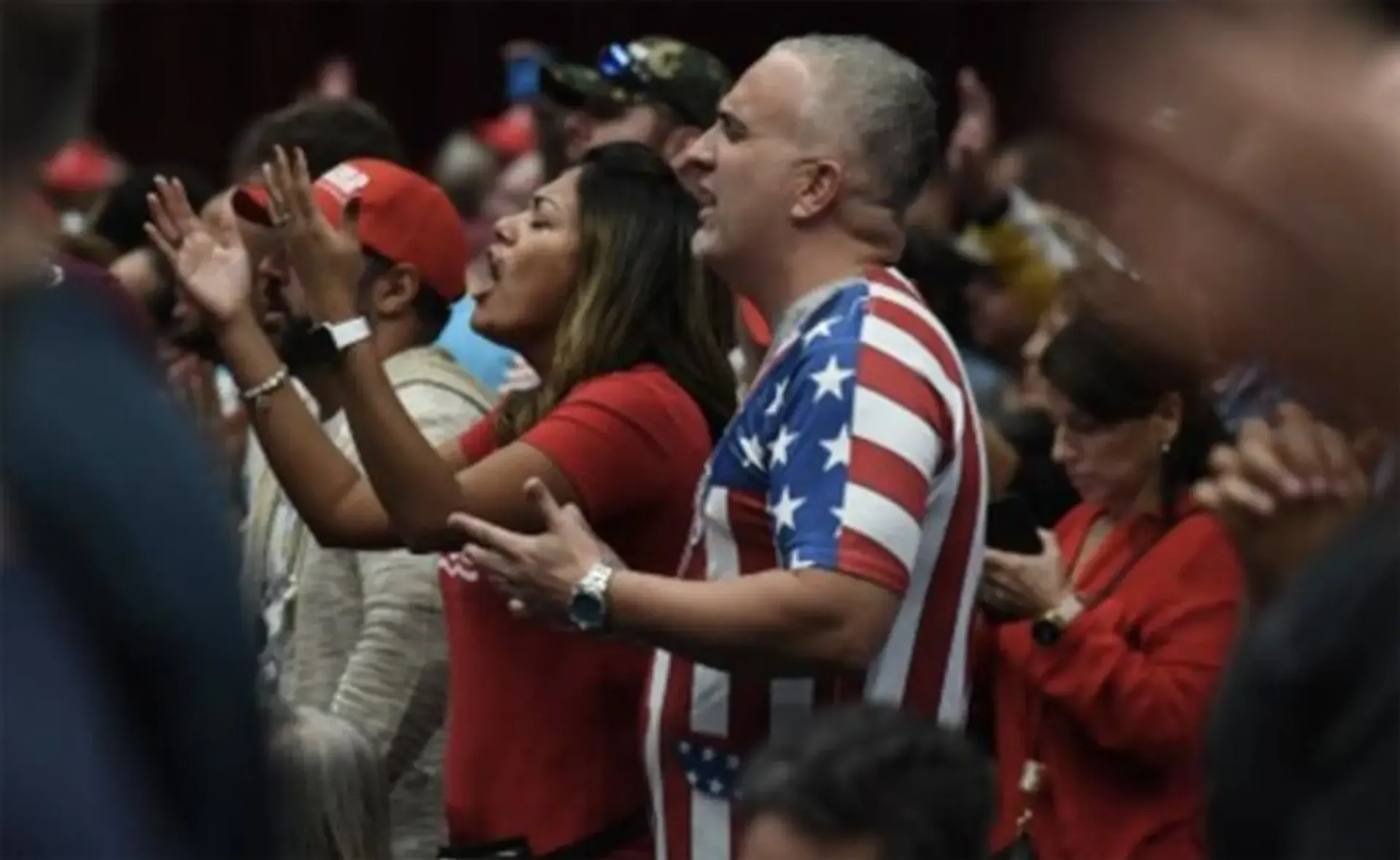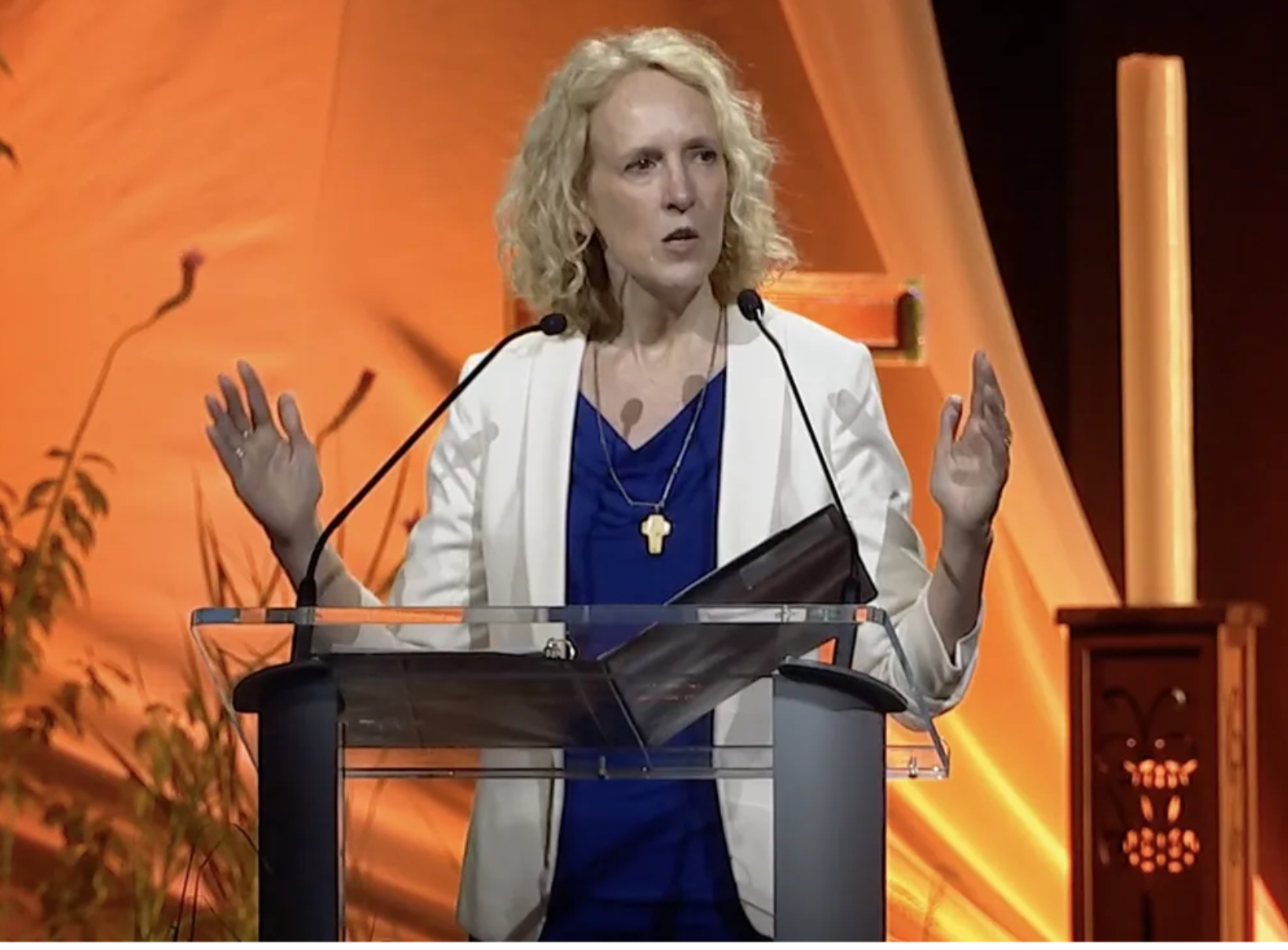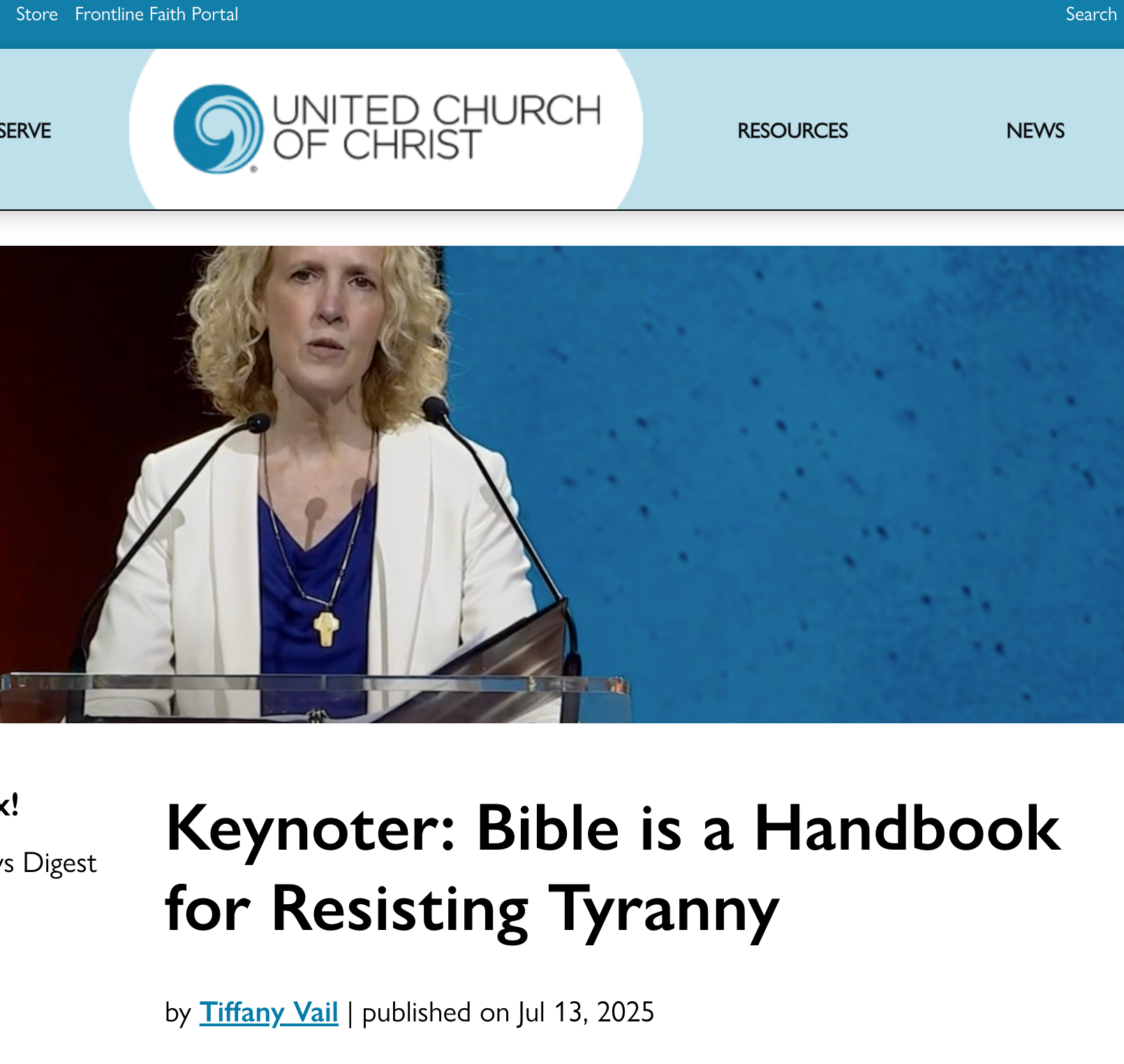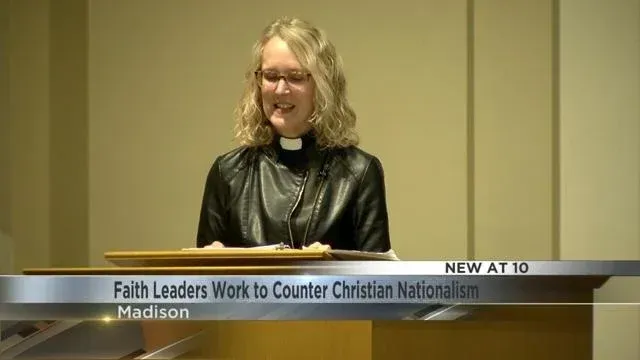Advent and Insurrection | Reflections on Mary’s Song
Over the past week, I have been watching with bated breath as the investigations into the Jan. 6 storming of the US Capitol continued to unfold. As more evidence comes out, it’s clear that the events of that day were even more severe than we knew at the time. From my home in suburban Washington, DC, I can vividly recall the fear and anxiety I experienced as I worried about the safety of my colleagues, friends, and community that live mere blocks away from the Capitol. It’s hard to believe it’s been almost a year.
However, in many ways, life has moved on. I understand the temptation to think of the insurrection as a singular event: a dark moment in our nation’s history that we now must move past. We want to think we’re out of the woods, but that’s not true. Insurrection is the era we live in, and the slow-motion coup undermining our democracy continues around us.
We are at a turning point in our democracy. Voting rights continue to be under attack. Elected officials have chosen a commitment to arcane Senate rules over passing meaningful legislation that the majority of Americans support. There has been little to no accountability for those who spread the lies that led to Jan. 6. What happens in the next few months or years will determine whether we have a functional, representative democracy.
What does it mean for us to be faithful in this time of insurrection and when there’s decreased access to the ballot box?
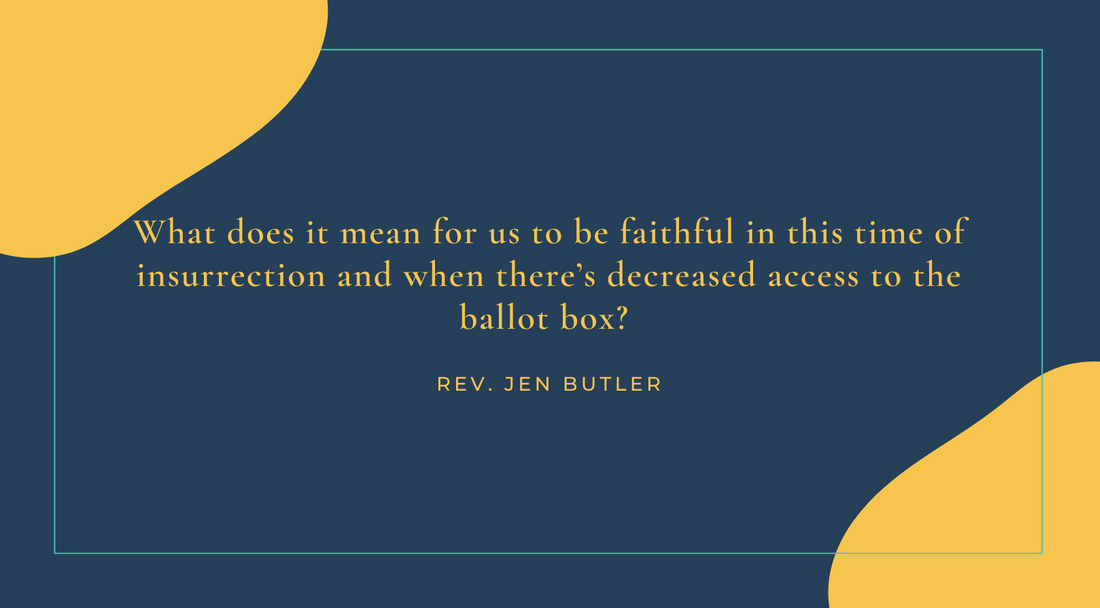
I recently wrote this reflection for Word&Way about Advent in the time of insurrection. Advent is a season of expectant waiting and preparation for both the birth of Jesus on Christmas and his eventual return. This season gives us space to hold in tension both the pain and suffering of the world we still live in and the joy and hope of the promises to come.
My own spiritual practice of Advent has recently brought me back to Mary’s song in Luke 1, also known as the Magnificat. Mary was a very young Jewish girl who was engaged to be married to a man named Joseph. She lived under Roman occupation in a patriarchal society where the words of a young woman held little value. One day, an angel appeared to her and proclaimed that although she was a virgin, she would soon give birth to a baby who would grow up to be the Messiah, the long-awaited Savior of the Jewish people. Although she didn’t fully understand how this was possible, Mary trusted that God’s will would be done. While pregnant, Mary went to visit her much older cousin Elizabeth, who had her own story of a miracle pregnancy. When Mary greets Elizabeth, Elizabeth immediately recognizes that Mary was carrying the Son of God. She affirms the message that the angel gave to Mary. Mary responds with this song, found in Luke 1:46-55 (NRSV):
“And Mary said,
‘My soul magnifies the Lord,
and my spirit rejoices in God my Savior,
for he has looked with favor on the lowliness of his servant.
Surely, from now on all generations will call me blessed;
for the Mighty One has done great things for me,
and holy is his name.
His mercy is for those who fear him
from generation to generation.
He has shown strength with his arm;
he has scattered the proud in the thoughts of their hearts.
He has brought down the powerful from their thrones,
and lifted up the lowly;
he has filled the hungry with good things,
and sent the rich away empty.
He has helped his servant Israel,
in remembrance of his mercy,
according to the promise he made to our ancestors,
to Abraham and to his descendants forever.’”
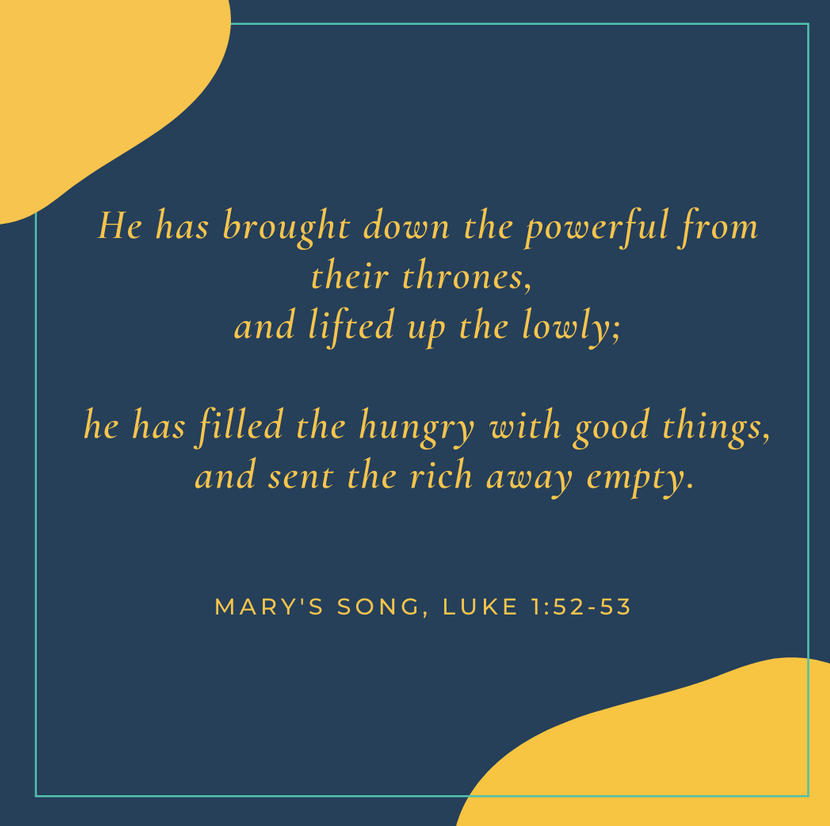
In the midst of so much political chaos, I long for the confidence that Mary projects in this song. When confronted with authoritarian leaders and a lack of accountability for those who propped them up, I want to believe that God will cast the powerful from their thrones and lift up the lowly. I wonder how long we must wait to catch a glimpse of this ultimate justice.
In the midst of the waiting, there is still reason to hope. It is God in us that allows us to participate in his great liberation work.
Although Mary didn’t have all the answers, she said yes to God’s vision for a new kind of kingdom built on love and human dignity. We have the opportunity to do the same. In fact, the Bible itself is a handbook for resisting tyranny. As we get to know the text in this way, it can inform us, give us courage, and change hearts and minds.
Our scripture gives us the tools to interrupt the dangerous slide into authoritarianism. As authoritarians incite hate and divide the citizenry, we can be democracy-building catalysts. We can challenge one another to remove blinders that come with implicit bias and white privilege. We can hold one another accountable and model democratic decision making. We can stand in solidarity with the marginalized and follow their lead as we join together in rebuilding our society to model the social norms presented to us at Sinai and echoed in the words of the prophets.
As we enter this new year, we have the opportunity to use our power in solidarity as a community to build the future we want to see. We can create a world where Mary’s song rings true.
On the evening of Jan. 6, my organization Faith in Public Life hosted an impromptu virtual prayer vigil with leaders from different faith traditions and communities. I closed that event with this prayer, and it continues to be my prayer for all of us here at the end of this year:
I hope you come away again knowing that you are not alone and knowing that you have spiritual power that can transform this country through divine rage that leads to love and manifests itself in activism and change. We can build the democracy that we’ve aspired to be and this is our moment to do it.
Action
- Contact your Senators
- Call your Senators and urge them to pass the Freedom to vote Act
- Sign this letter calling on Senators to eliminate the filibuster and pass legislation to build a Holy Recovery
- Read and Reflect
- Read more about Advent in the time of insurrection through the Word&Way devotional series
- Reflect on this piece by Tish Harrison Warren about what we can learn from Mary in this Advent season
- Learn more about how the Bible is a handbook for resisting tyranny through my book “Who Stole My Bible?”
